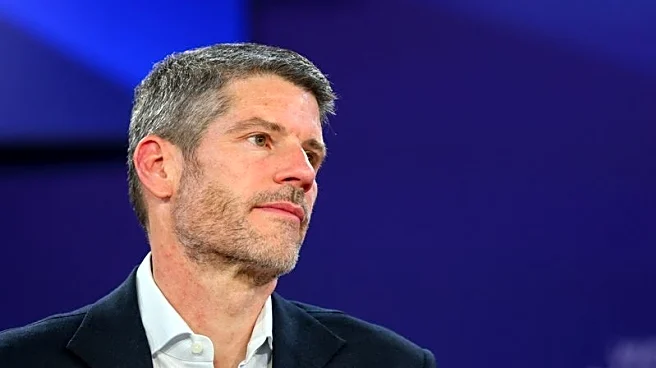What's Happening?
Take-Two Interactive, the parent company of Rockstar Games, is facing allegations of union busting following the firing of 30 to 40 employees. These employees claim they were dismissed for participating in a union-related Discord chat, while the company asserts
the firings were due to the distribution of confidential information. This controversy coincides with the announcement of a delay in the release of Grand Theft Auto 6, now scheduled for November 2026. Take-Two CEO Strauss Zelnick has defended the company's labor practices, highlighting their low attrition rates and recognition as a top employer. Despite these claims, the Independent Workers Union of Great Britain (IWGB) accuses Rockstar of prioritizing union busting over game development.
Why It's Important?
The allegations against Take-Two Interactive highlight ongoing tensions between tech companies and labor movements, particularly in the gaming industry. The situation underscores the challenges employees face when attempting to organize and advocate for better working conditions. The delay of a major title like GTA 6 also has significant financial implications for Take-Two, potentially affecting investor confidence and market performance. The outcome of these allegations could influence labor relations and unionization efforts within the tech and entertainment sectors, setting precedents for how companies handle employee organization.
What's Next?
As the situation develops, Take-Two and Rockstar may face increased scrutiny from labor organizations and the public. The company might need to address these allegations more comprehensively to mitigate reputational damage. Additionally, the delay of GTA 6 could lead to strategic adjustments in marketing and development timelines. Stakeholders, including investors and employees, will likely monitor the company's response to these challenges closely, potentially influencing future labor policies and corporate strategies.
Beyond the Headlines
The controversy at Take-Two Interactive reflects broader cultural and ethical questions about corporate responsibility and employee rights in the tech industry. The balance between maintaining confidentiality and supporting employee rights to organize is a critical issue that could shape future labor policies. The case also highlights the potential for increased union activity in traditionally non-unionized sectors, driven by employee demands for fair treatment and transparency.















